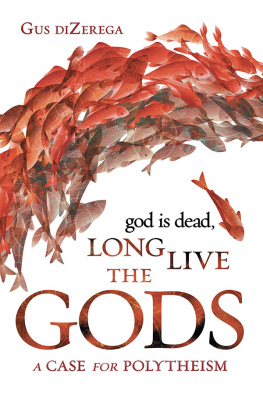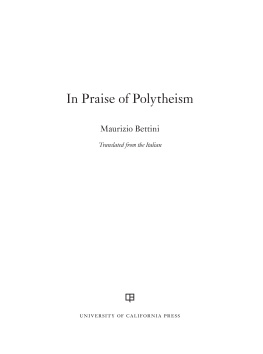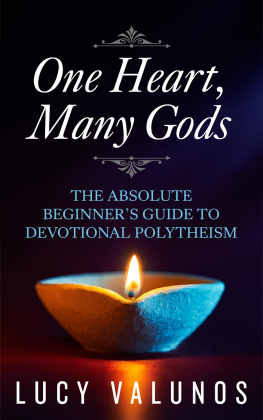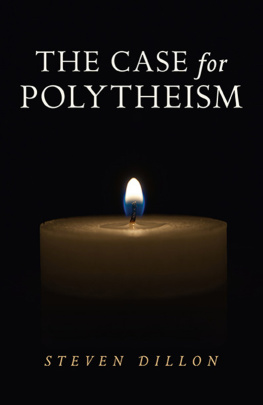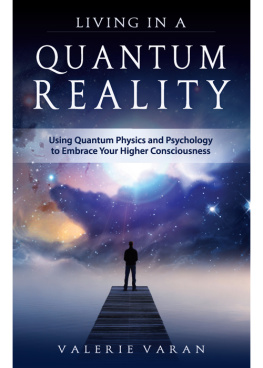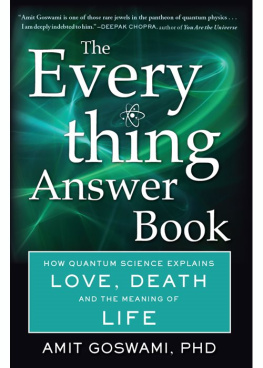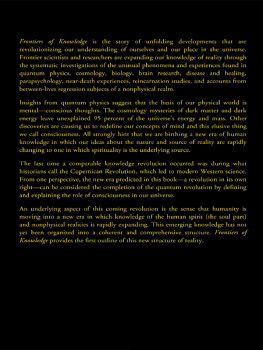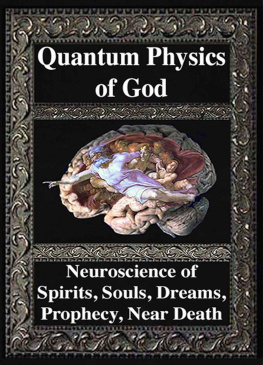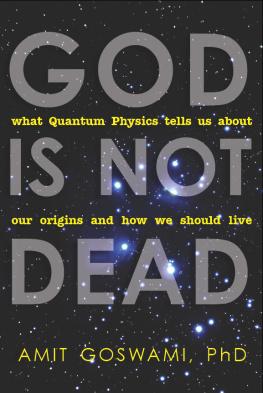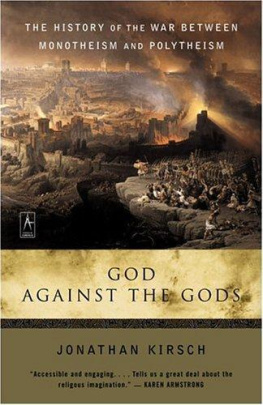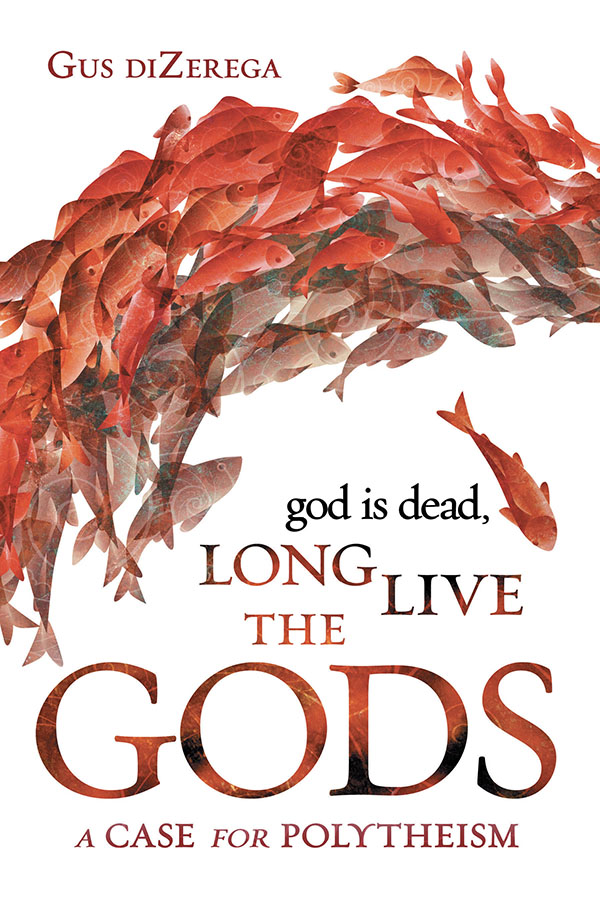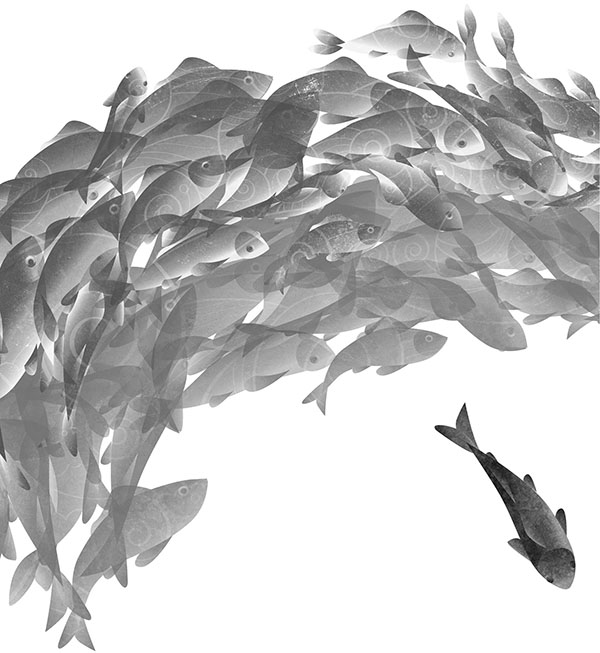Gus diZerega, PhD, has extensive teaching and publishing experience both in mainstream social science and on Pagan and shamanic subjects. Gus is a Third Degree Elder in Gardnerian Wicca; has studied closely with Timothy White, founder of Shamans Drum magazine; and has intensively practiced Brazilian Umbanda for six years under Antonio Costa e Silva, later integrating it into his own healing work. He has given workshops and talks on Pagan spirituality and healing in the United States and Canada.
Gus more secular research has focused on democratic theory, complex adaptive systems in the social and biological world, and environmental theory and policy. His extensive academic publication record includes papers in many refereed journals, chapters, and books, and he has organized international conferences and taught internationally in the social sciences.
God Is Dead, Long Live the Gods brings these two strands of his life together in a way he believes does justice to both.
Much of Gus work can be accessed on his website: www.dizerega.com.

Llewellyn Publications
Woodbury, Minnesota
Copyright Information
God Is Dead, Long Live the Gods: A Case for Polytheism 2020 by Gus diZerega.
All rights reserved. No part of this book may be used or reproduced in any matter whatsoever, including Internet usage, without written permission from Llewellyn Publications, except in the form of brief quotations embodied in critical articles and reviews.
As the purchaser of this e-book, you are granted the non-exclusive, non-transferable right to access and read the text of this e-book on screen. The text may not be otherwise reproduced, transmitted, downloaded, or recorded on any other storage device in any form or by any means.
Any unauthorized usage of the text without express written permission of the publisher is a violation of the authors copyright and is illegal and punishable by law.
First e-book edition 2020
E-book ISBN: 9780738763033
Book design by Samantha Penn
Cover design by Shannon McKuhen
Llewellyn Publications is an imprint of Llewellyn Worldwide Ltd.
Library of Congress Cataloging-in-Publication Data (Pending)
ISBN: 978-0-7387-6272-2
Llewellyn Publications does not participate in, endorse, or have any authority or responsibility concerning private business arrangements between our authors and the public.
Any Internet references contained in this work are current at publication time, but the publisher cannot guarantee that a specific reference will continue or be maintained. Please refer to the publishers website for links to current author websites.
Llewellyn Publications
Llewellyn Worldwide Ltd.
2143 Wooddale Drive
Woodbury, MN 55125
www.llewellyn.com
Manufactured in the United States of America
I dedicate this book to
Don Frew
Teacher, colleague, and friend
Acknowledgments
A book such as this seeks to integrate more fields than anyone can personally master, and so I am deeply beholden to the philosophers, historians, theologians, and social scientists on whose work I have depended to add depth and context to my own. Hopefully I got their insights right! In addition, over thirty-five years of active involvement in the NeoPagan community and related practices as well as interfaith have deepened my understanding of these matters, not least through conversations with many fellow Pagans too numerous to name individually. Finally, I am deeply grateful to my editor, Elysia Gallo of Llewellyn, who worked hard, and I think successfully, to make sure all my manuscripts I s were dotted, T s crossed, and ambiguous phrasing clarified. This is a far better book due to her hard work.
Contents
. Polytheistic Monotheism
. How Monotheism Dissolved into Polytheism
. The Incoherence of Monotheism
. Science, Monotheism, and the Death of the World
. Polytheistic Experiences
. Science and Spirit
. The Living World: From the Many, One
. The Living World: Mind and Culture
. The Case for Polytheism
Introduction
The moon is full above Californias soaring redwoods as the coven meets beneath them to honor the goddess and do magick. The circle has been cast, the directions called, and the High Priest approaches the High Priestess to invoke the goddess, calling out I call upon Thee o mighty mother of us all At the invocations conclusion, she enters into the woman, to teach and bless those gathered in her name. One of the coven members has a request for the group to help her find an affordable place to live. Aided by her presence, a chant is created and, at its height, the High Priestess sends the energy raised off to help achieve the members request.
At a signal from the Mae de Santo, the bat drummers begin pounding out a complex rhythm. Within the temple, men and women dressed in white begin singing and clapping to honor and call upon an orisha, an African deity, one of many. Soon one of the participants, a woman, shudders and begins to shake, and then dance, and whirl, as Ochossi arrives to join the celebration. As she better integrates with the divine arrival, her movements shift into the stylized dance associated with that particular orisha. As the ritual progresses, other orishas may arrive as well, each choosing a member with whom to join, dance, and heal.
Within a tent from which all light has been blocked, the Medicine person has been bound tightly. As he lies on the ground, the rest of the space tightly packed with guests and the main person to be healed, drums begin beating a steady rhythm, like the beating of a heart. Soon tiny lights begin to flash overhead in the otherwise total darkness, and people feel feather fans brushing against their heads as they receive healings along with the person for which the Yu Wipi Ceremony has been called. In time the drums cease, the lights and fans vanish, and when the space is illuminated again, the Medicine person is sitting quietly, his bindings neatly placed at his feet.
These examples come from very different cultures: Western Europe, East Africa, and North America. These particular ceremonies occurred in Northern California, but they could have occurred anywhere. What they share is a common experience of participants directly encountering the world of Spirit. Those participating are a varied lot, from construction workers to scientists; from doctors to students; and indeed, just about any other way of life. They usually leave feeling much better than when they arrived, and often personally enriched with new insights for living their lives.
This is polytheism in action as a part of peoples reality, American style.
But American culture is usually described as a combination of Christianity and secularism, a society deeply divided by the spiritual and scientific tensions between them. If polytheism is considered at all, it is treated as a way station most have long since passed in humanitys journey toward worshiping one god, or alternatively, none at all.
I will argue here that both perspectives are mistaken, and that what we loosely call polytheism is the natural experience human beings have always had of the world of Spirit, and that it is a much more accurate understanding of the world within which we live than the secularism usually considered the alternative to monotheism.

